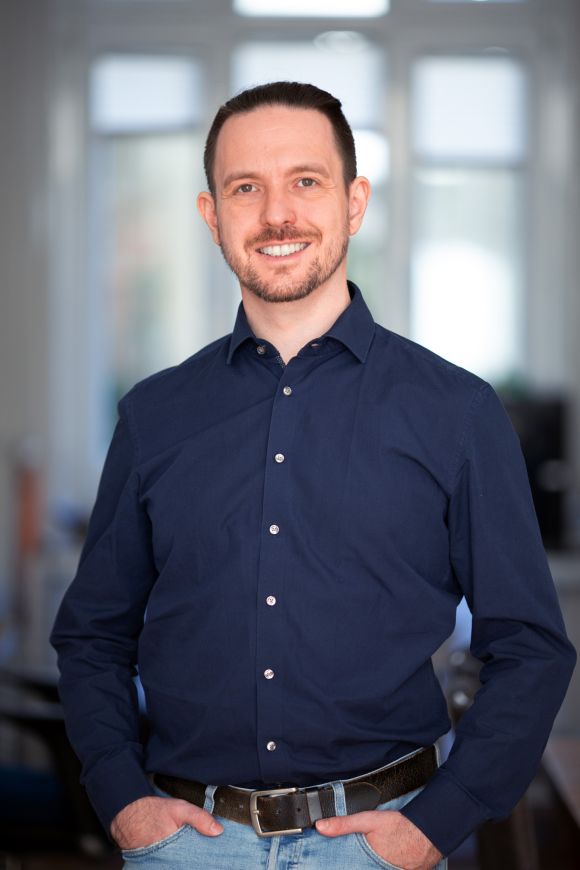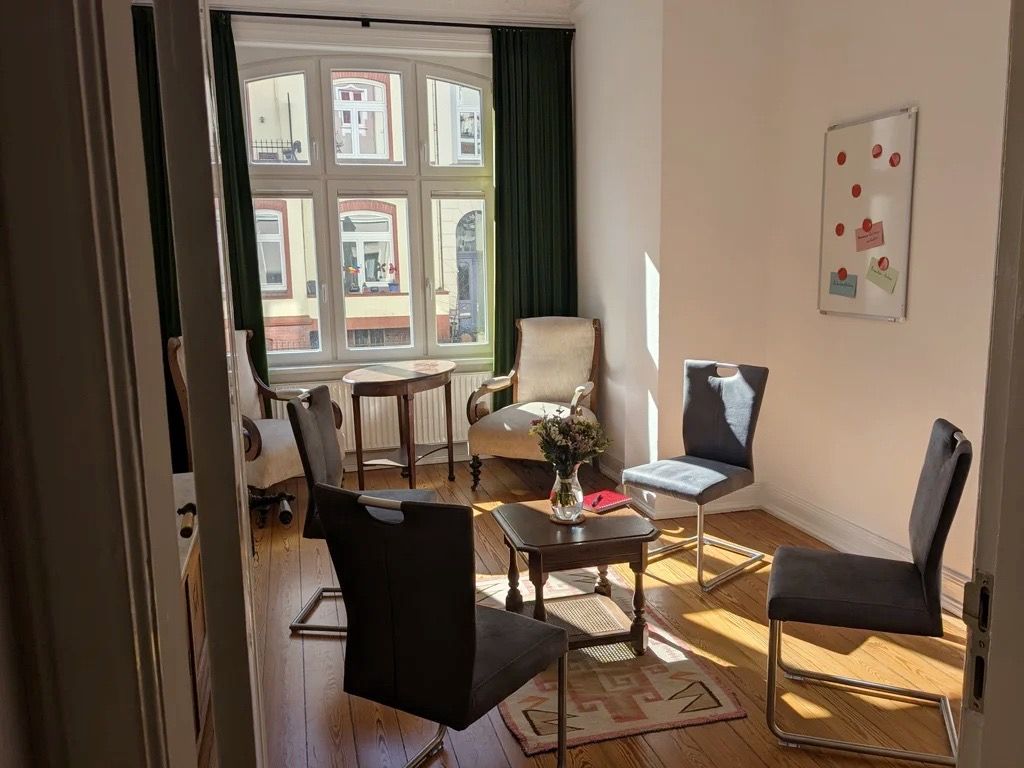

Mediation is voluntary
Mediation is a proven, voluntary process for conflict resolution. As a neutral mediator, I create a structured and respectful framework and support you in finding a solution in a joint dialogue that is acceptable to all parties involved. The result is an agreement.
Constructive and conciliatory
Mediation promotes constructive dialogue, reveals new perspectives, decodes emotions and uncovers old wounds. It can preserve relationships and reconcile people, discover creative solutions, conclude fair agreements and, if necessary, accompany fair separations.
Mediation has limits
Mediation cannot resolve highly escalated conflicts or criminal matters, compensate for a lack of willingness to co-operate, make decisions or arbitration awards for you, treat or change people.
When you realise that you are not getting anywhere with the conflict, I will support you effectively.
Conflicts are unavoidable, but not insoluble
Conflicts are part and parcel of interpersonal dialogue. They are the natural consequence of the differences between people in terms of their interests, perspectives and lifestyles. However, the consequences are not only unpleasant feelings, but also destructive behaviour, inefficient work and chaos. Communication becomes increasingly difficult, and people gradually realise that they can no longer find their way out of the conflict on their own.
When conflicts get stuck: How mediation opens up new perspectives
If you have reached this point, I can help you. Regardless of whether it is a conflict between neighbours, friends, family members or at work. My neutral and equalising presence will break through destructive communication patterns. The simultaneous support through a structured and methodical process enables you to gain confidence that a way out of the conflict is possible.
From chaos to clarity
In mediation, we uncover misunderstandings together, awaken understanding for the other person's perspectives and develop new creative ways to prevent the conflict from escalating again in the future.
Preserving relationships, resolving conflict
Mediation is relationship work and is therefore particularly helpful in conflicts where a well-functioning relationship is important and desired in the future. Colleagues want to work well together in the long term, neighbours want to continue to live peacefully next door to each other and family members and friends want to get along as well as possible.
Examples of successful mediation
My field of activity includes conflict resolution in various areas of life:
Short description
A young couple with a small child argue often and violently. They are looking for a way out.
Problem
Accumulation of misunderstandings, even small conflicts are very quickly carried out emotionally, both feel left alone and not heard.
Method
Several 90-minute sessions, partly online. Two mediators, man and woman, to mirror the couple.
Result
Destructive patterns in communication are uncovered and misunderstandings are clarified. Both partners have a better understanding of each other's perspectives and needs. An informal agreement is reached to improve communication.
Short description
A single mum and her 18-year-old son are having more and more conflicts. The mother doesn't know what to do and is looking for help. The son agrees to mediation.
Problem
The mother is very worried because her son spends a lot of time playing games and watching series on the computer. The son feels restricted in his self-determination. Both feel very uncomfortable with the way the conflict is being handled.
Method
Several 90-minute online meetings with two mediators.
Result
Both open up to the perspective of the other and recognise the needs of the other person. An informal agreement is drawn up in order to better intercept future conflicts.
Short description
Disputes and disagreements increasingly arise in the organisation team of an international fellowship meeting lasting several days.
Problem
Individuals feel unappreciated, unvalued and misunderstood.
Method
Two-hour group mediation with all parties involved in the conflict (in English).
Result
Much appreciation is expressed for the (voluntary) work and misunderstandings are cleared up. The people involved feel a great sense of relief and the initial friendly atmosphere returns.
Short description
The Disability Council of a medium-sized town is completely divided and no longer functional. The city council authorises mediation to re-establish cooperation.
Problem
Some members pursue very conflicting interests. Disputes arise in which the others are morally devalued. Other members withdraw in frustration due to the dispute. In addition, the needs of the individual members are very different due to their various disabilities. There are also non-disabled members of the council. In the background, different interests of the parties in the city council play a role in the conflicts. These interests are opaque.
Method
As the conflict exists during the coronavirus period, several 90-minute online sessions are arranged, including sign language interpreting. In between, there are several individual online sessions and telephone calls with key conflict persons. At the end, there is a session with face-to-face attendance. Two mediators work with the group, which consists of around 20 people.
Result
Key misunderstandings were clarified and people who had withdrawn from the joint work returned to the Council. Destructive communication patterns are uncovered and thoughts on a possible dissolution of the Council are recorded. The wish is expressed to the politicians that the work of the Council should be accompanied by an advisory mediator until further notice.
Short description
Organisation of dialogue groups (English and French) for an international network of peace activists. Led one of the groups myself.
Problem
Growing generational problem in the network. The ‘young’ want more responsibility and cannot identify with the established structures, the ‘old’ want to pass on their experience and knowledge and see more commitment from the ‘young’.
Method
Three 90-minute online meetings per group (max. 10 people with two facilitators) on consecutive days. Some of the participants knew each other beforehand, others did not.
Result
Greater understanding of the different needs of different age groups. New connections have been established. A positive side effect: a greater understanding of the different living conditions in other regions of the world.
What I can do for you:
It is crucial for successful conflict resolution that you feel safe and in good hands. The ‘chemistry’ between mediator and conflict parties must be right.
I listen and build bridges
I am by nature an ‘encourager’, ‘knot untier’ and ‘bridge builder’. My communication is authentic and empathetic. My understanding of different perspectives helps me to recognise and appreciate the concerns of all parties involved.
Structured and methodical approach
A well-structured and methodical approach is the key to successful mediation. I ensure that the process is clear and effective so that all parties can have their say and work together constructively.
Expertise in the corporate and voluntary sectors
Thanks to my professional experience, I understand the dynamics of conflicts in companies as well as in voluntary teams. Whether it's team conflicts, strategic decisions or internal tensions, I can help you create clarity and harmony.
Intercultural expertise
Having worked in international teams for many years, I have developed a deep understanding of different cultural perspectives. These intercultural competences are particularly valuable when it comes to resolving conflicts in an international or multicultural context.
Bilingual mediation
I offer mediation in both German and English. This flexibility enables me to bring people from different language backgrounds together and promote dialogue across language barriers.
Duration & costs
Sessions according to individual needs
Depending on the case constellation, mediation usually involves 1 to 10 sessions (see examples above). A session is usually 90 minutes long. Half-day or full-day mediations are also possible for group mediations. We usually find an appointment at short notice.
Flexible rates
- Fees are charged on an hourly basis or at a daily rate from EUR 120.00/hour for private individuals and from EUR 150.00/hour for companies.
- For online mediation I charge EUR 90.00/hour for private individuals and EUR 120.00/hour for companies.
- If co-mediation (several mediators) is necessary due to the number of parties to the conflict, the costs are correspondingly higher.
- The costs of mediation are usually borne equally by the parties to the conflict. In general, mediation is significantly cheaper and quicker than court proceedings.
- The Mediation can be terminated at any time.
- I offer special conditions for volunteer teams. Please contact me for more information.
Location: According to your choice
The sessions can take place at my premises in Lübeck or at your premises or online. An online mediation is always a good option if the parties to the conflict live far apart or it is difficult to find an appointment.
The aim of mediation is not to get rid of the conflict, but to find a way to manage it.
Sebastian Hasse
Answers do not exist before we dare to imagine them.
Background
-
Since 2024
Freelance mediator in Lübeck
-
Since 2020
Member of a mediator network in Berlin
-
Since 2017
Active in the international network of Initiatives of Change (2021-23 from France).
-
Since 2012
Actively involved in civil society at Initiative Mittel- und Osteuropa e.V.
-
2014-21
Customer support and consulting in a nationally successful software company
-
2007-14
Self-employed in film production and acting, including production of the multi-perspective YouTube series ‘Points of You’
Education
-
2020
Completion of training to become a certified mediator at ImKonsens in Berlin
-
2006
Dipl. Inf. degree from the University of Lübeck
Further training
-
2025
"Caux Scholars Program" (Brazil)
-
2024
"Peace mediation" (Berlin)
-
2021
"Online mediations" (online)
-
2020
"Mediation in organisations" (Berlin),
"Mediation in teams and groups" (Berlin) -
2019
"Caux Peace and Leadership Programme" (Switzerland)

Contact
-
Seydlitzstraße 21, 23564 Lübeck, Germany
-
This email address is being protected from spambots. You need JavaScript enabled to view it. -
+49 1590 1439001

Contact form
** Note: The data will only be used for the purpose of processing your enquiry and will not be passed on to third parties. You can revoke your consent at any time for the future by sending an e-mail to

